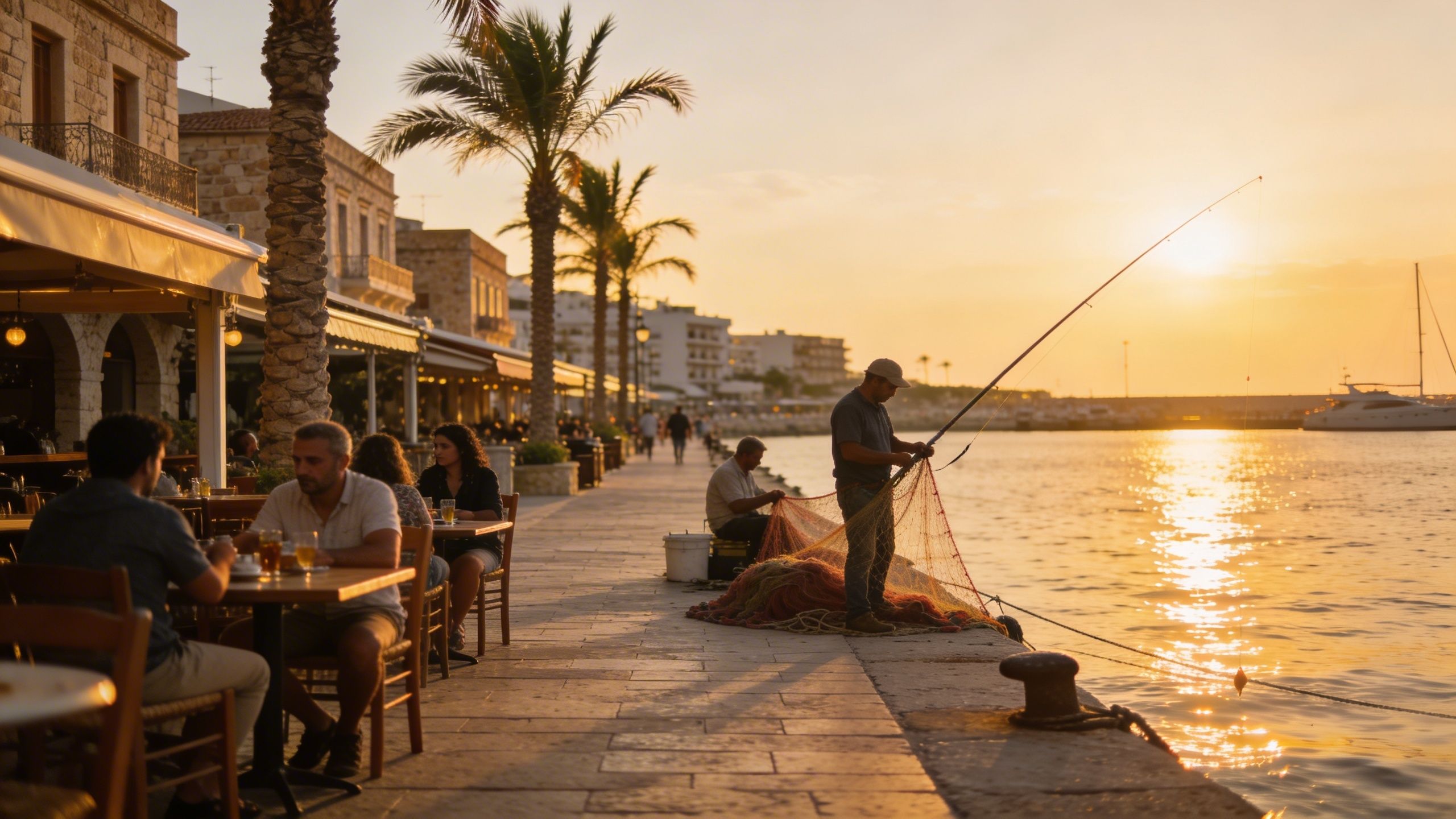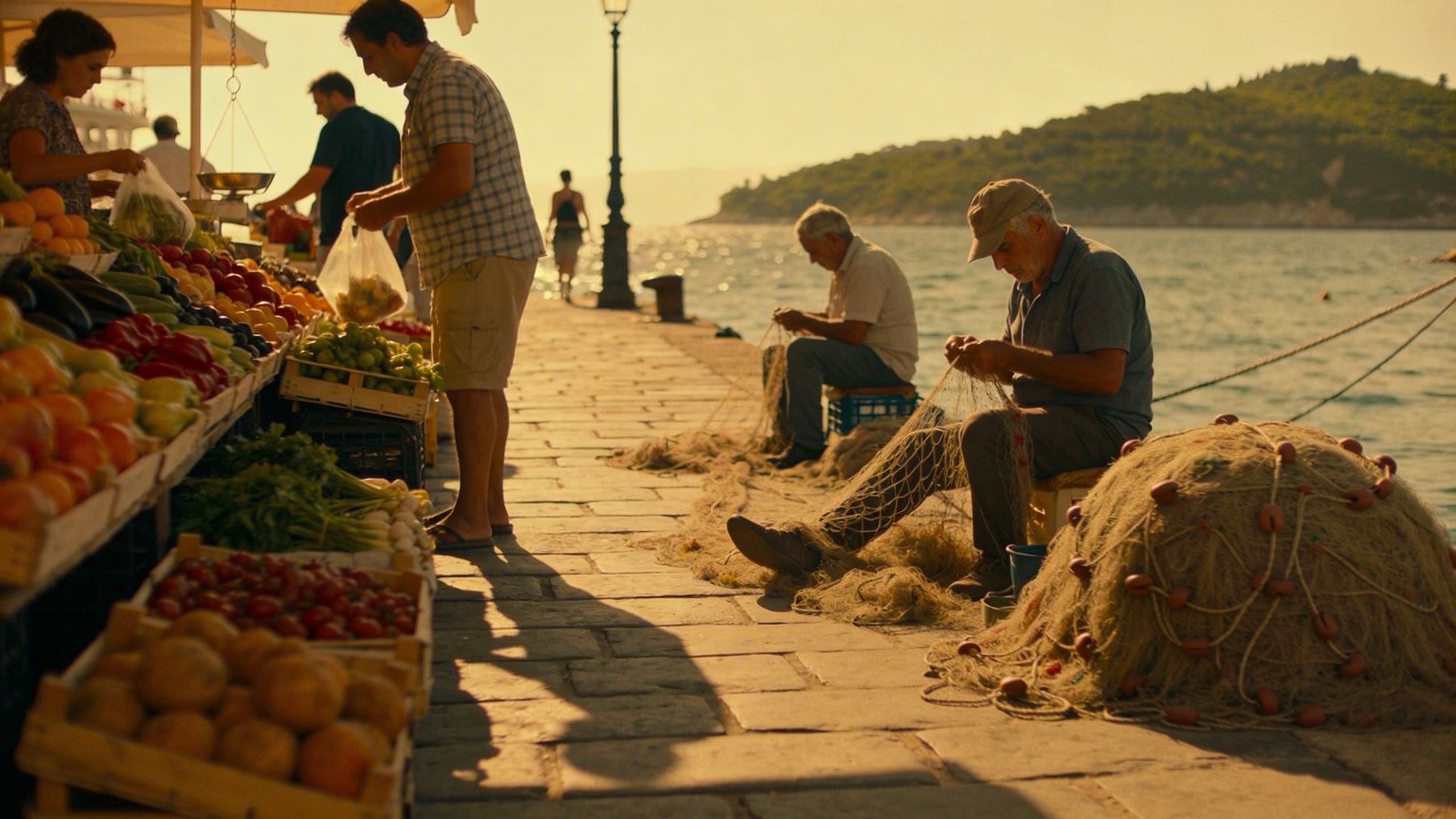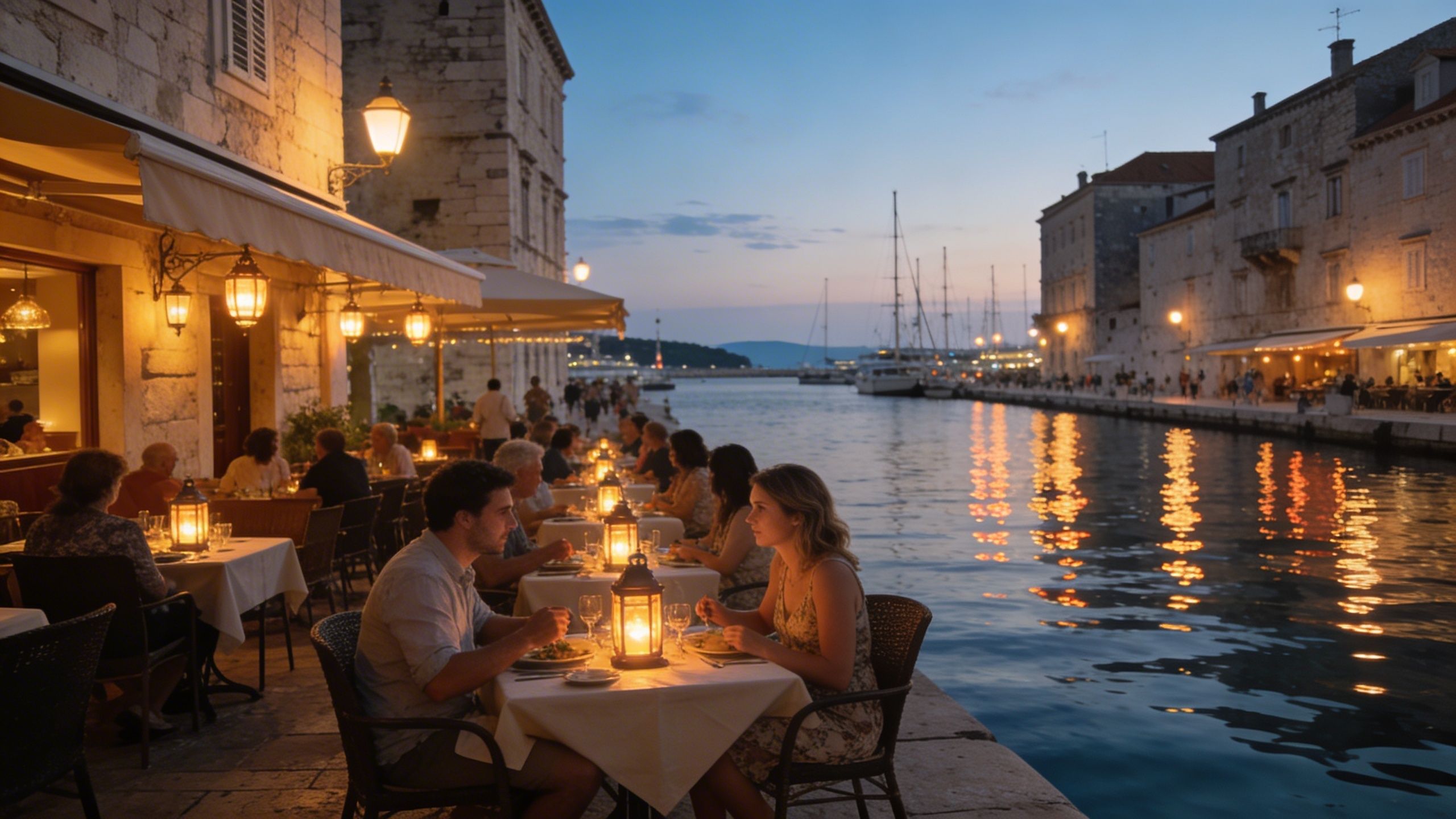Adriatic Tax Shift: Timing, Costs and Lifestyle Trade‑Offs
How Croatia’s tax changes (transfer tax, VAT and a new annual property levy) alter the cost and character of coastal living — and the practical steps buyers should take.
Imagine a late-summer morning in Split: espresso crema at Café Lux on the Riva, fishermen’s nets drying along the quay, and light falling across stone façades that have known a thousand summers. That image is why people come — and why taxes announced in 2024–25 matter so much. New property levies, shifts from transaction to ownership taxation, and local decisions on rates change the arithmetic of buying here; they also reshape which neighbourhoods stay lively year‑round and which become seasonal portfolios. This guide walks the landscape from morning markets to municipal tax offices, pairing the sensory pleasures of coastal life with the practical steps serious buyers must take.
Living the Croatian lifestyle: coast, cobbles and community
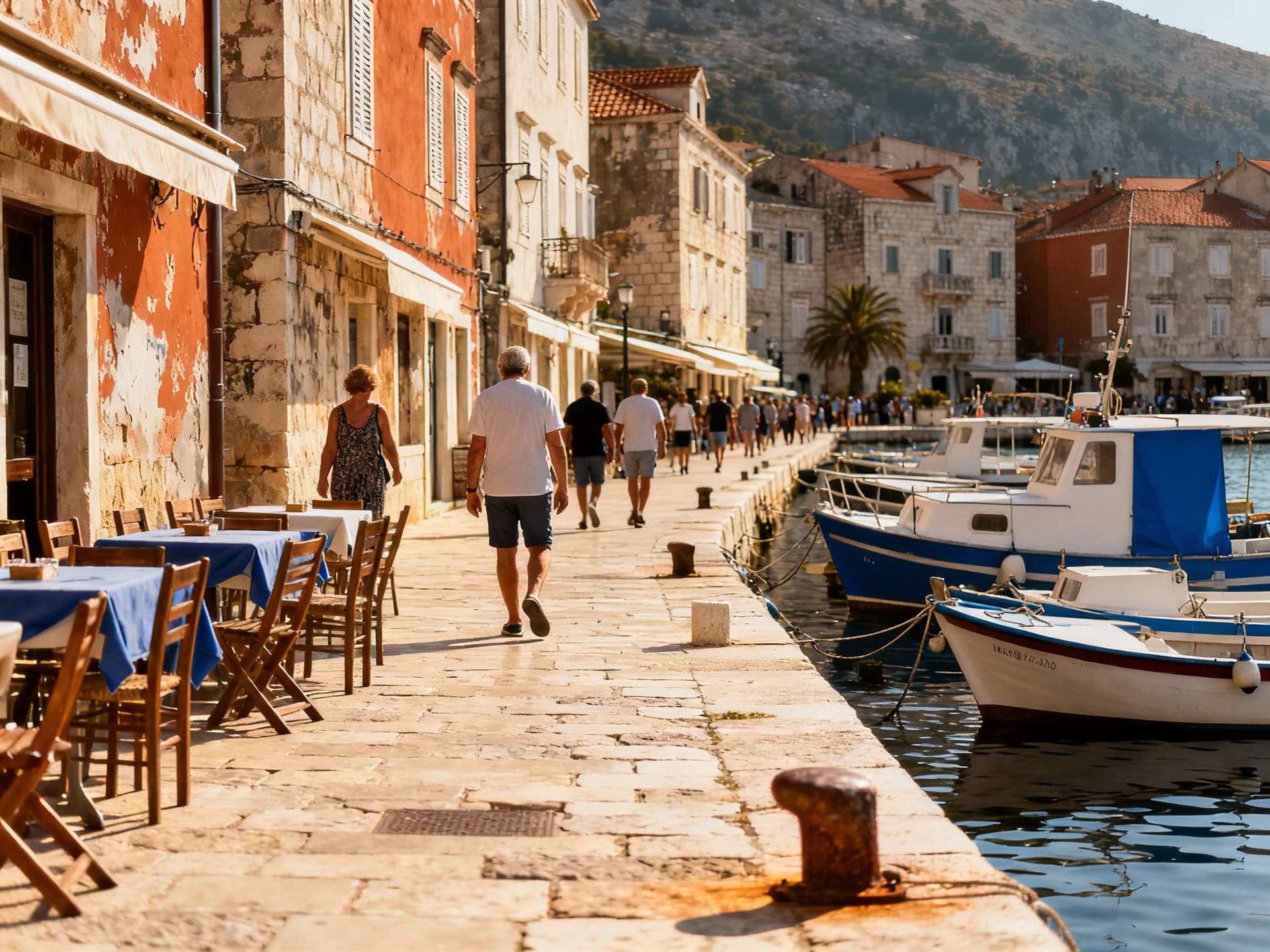
Daily life in Croatia balances architectural weight with a gentle Mediterranean tempo. In Dubrovnik’s Old Town you hear church bells over limestone alleys and expect strict limits on alterations; in Rovinj’s Balbi Arch you notice Venetian tracery and a baker who still uses a wood oven. Coastal towns pulse with tourism from May to September, but the true character of a place is revealed in off‑season rhythms: markets in Zadar on grey mornings, family tavernas lighting wood stoves in Istria, and fishermen untangling lines in small harbours.
Neighbourhood notes: Split’s Veli Varoš to Hvar’s Stari Grad
Veli Varoš, just below the Marjan hill in Split, is intimate — narrow lanes, family-run konobas and terraces that catch evening light. In contrast, Hvar’s Stari Grad offers quiet stone courtyards and a rhythm shaped by local olive growers and seasonal sailors. These areas attract buyers seeking authenticity rather than resort spectacle; that affects how local councils set property-usage rules and, crucially, whether a property will qualify for exemptions from the new annual property tax.
Food, market life and the seasonal calendar
Picture Sundays at Dolac Market in Zagreb or a late afternoon fish barbecue in Makarska: food anchors daily life here. Seasonal festivals — olive harvests in Istria, Klapa singing in Dalmatia — are not mere entertainments; they signify community uses of places that municipalities consider when deciding tax reliefs for long‑term rentals and primary residences. Knowing where local life is strongest helps buyers choose properties that will be exempted or taxed more lightly under new rules.
- Lifestyle highlights worth mapping before you buy
- Dolac Market (Zagreb) — morning produce and a sense of the city beyond tourism
- Marjan hill walks and family beaches (Split) — year‑round community life
- St. Euphemia neighbourhood cafés (Rovinj) — artisan food and quiet winters
- Local konoba on Vis — seasonal fishing community that sustains a village
Making the move: taxes that affect how you live here
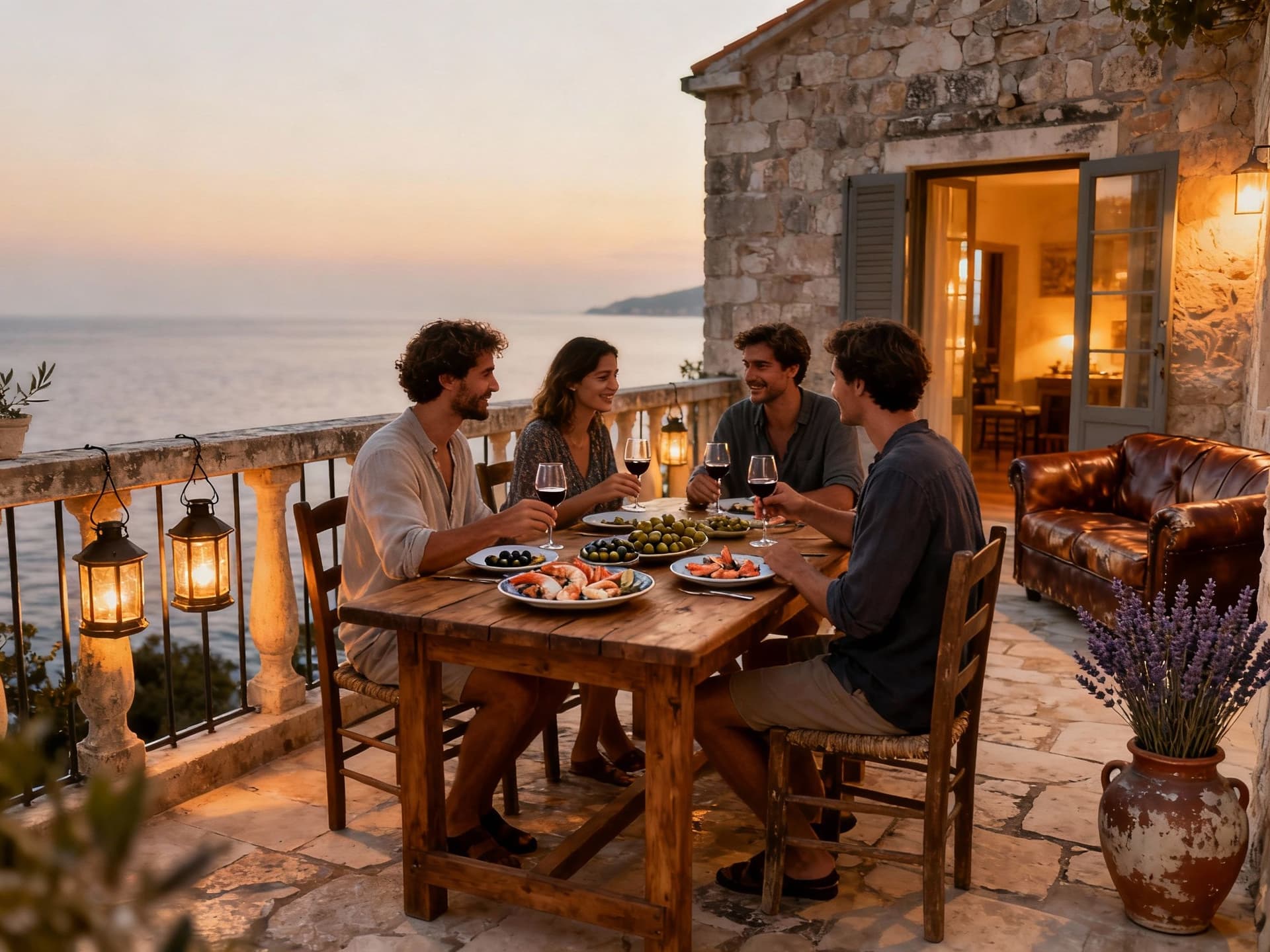
The shift announced in 2024–25 moves the fiscal emphasis from income taxes toward property ownership. For buyers this means three practical realities: a purchase-stage transfer tax or VAT decision, an annual property tax set by municipality, and tax rules that favour long-term occupancy. Understanding which applies to a specific house — resale versus new build, permanent residence versus holiday let — changes both purchase price calculations and the long‑term cost of stewardship.
Transfer tax, VAT and new-builds
When you buy a resale home the Real Estate Transfer Tax is generally 3% of market value, payable by the acquirer; however, new-build transfers may be subject to VAT (standard 25%) instead of transfer tax. That distinction matters: VAT applies commonly to developer sales and can change which properties are financially attractive to foreign buyers. Always confirm at contract stage whether the sale is VATable — your notary and tax adviser should verify the seller’s VAT status and the contract wording.
Annual property tax: ranges, exemptions and municipal discretion
From 1 January 2025 municipalities may levy an annual property tax between €0.60 and €8.00 per square metre of usable area, with a wide local variation across towns and islands. Exemptions typically include primary residences and properties rented for at least ten months a year; many coastal tourist towns opt for higher rates, while inland municipalities often choose the minimum. For buyers this means the same square metre can carry very different carrying costs depending on municipal policy.
Immediate steps to gauge your tax exposure
- Contact the municipal tax office where the property sits; confirm the rate per m², any local exemptions, and application deadlines.
- Ask the seller for documentation showing whether the sale is VATable (new build) or a resale subject to the 3% transfer tax; request the seller’s VAT registration details if relevant.
- Model total ownership cost for five years — include transfer tax or VAT, annual property tax, utilities, insurance and plausible vacancy or rental income scenarios.
- Consult a Croatian tax advisor and notary early; small drafting points in a preliminary contract can materially change tax exposure.
Insider knowledge: what expat buyers often miss
Expats fall in love with a place first and the contract later; that is natural, but it creates blind spots. Owners often underestimate the impact of municipal rates, or assume a holiday‑let premium will offset annual levies. Others overlook how local planning rules restrict changes to façades, terraces or extensions — decisions that affect rental eligibility and therefore tax exemptions. Real stories from buyers in Istria and on Korčula show that a house that feels perfect in July can feel financially heavy in January if long‑term rental relief is not available.
Cultural and practical considerations for integration
Learning a few phrases of Croatian and frequenting a neighbourhood konoba pays dividends in local goodwill; municipalities value demonstrated local use when assessing exemptions. Similarly, registering a property as available for long‑term rental (ten months or more) often reduces tax exposure — but requires compliance with local hospitality and housing regulations. Engage a lawyer who understands municipal policy, not only national law.
Red flags that should prompt deeper due diligence
- Seller claims of “no tax” without documentation — always request official confirmation.
- Unclear municipal status — if the municipality has not set rates you may face uncertainty in the first year.
- Promises of high short‑term rental income used to offset higher property taxes — test conservatively and model off‑season occupancy.
Working with the right local agency
An agency that understands both the rhythm of life in a district and the local fiscal choices is invaluable. Choose advisers who can introduce you to municipal clerks, provide recent local tax decisions, and show evidence of long‑term rental records if that is part of your plan. Their role is not only to find houses that feel right at dusk, but to ensure those houses remain affordable in the municipal ledger.
Conclusion: where lifestyle meets stewardship
Croatia’s recent tax recalibration reshapes which coastal corners remain intimate and which tilt toward investor portfolios. For the discriminating buyer who values provenance and year‑round life, the lesson is clear: pair the sensory research of markets and cafés with rigorous municipal and tax due diligence. Begin with modelled ownership costs, confirm VAT/transfer tax status at contract stage, and work with advisers who know the streets as well as the statutes. That way the Adriatic life you imagined becomes a responsibly stewarded reality.
Dutch former researcher who moved to Lisbon, specialising in investment strategy, heritage preservation, and cross-border portfolio stewardship.
